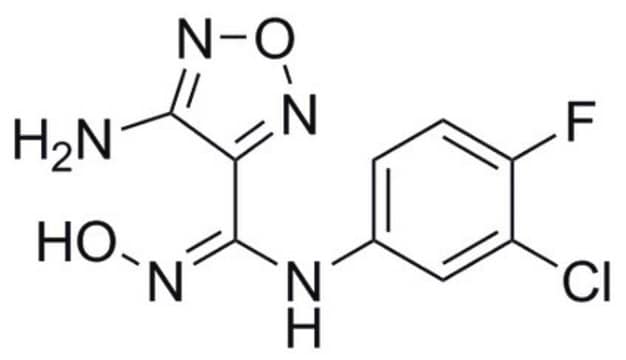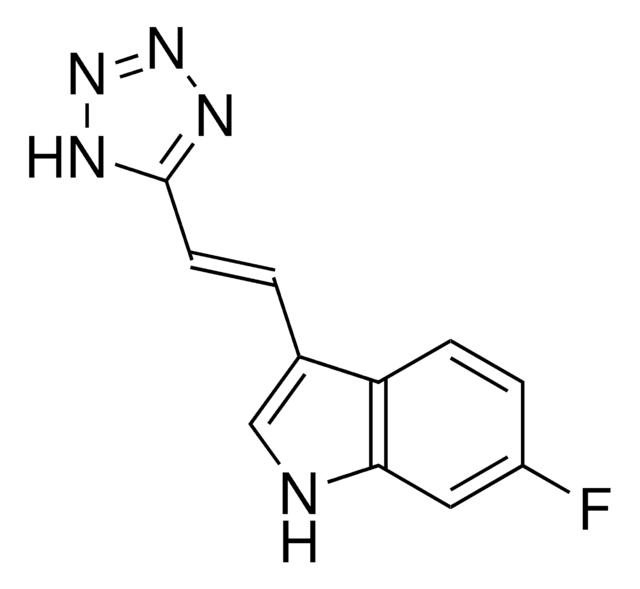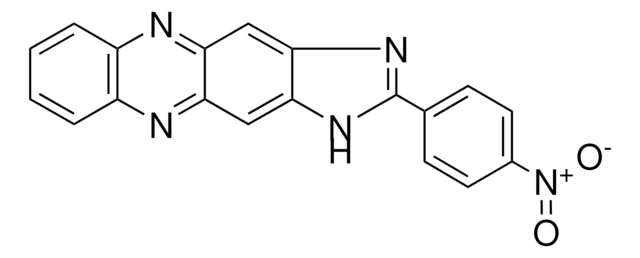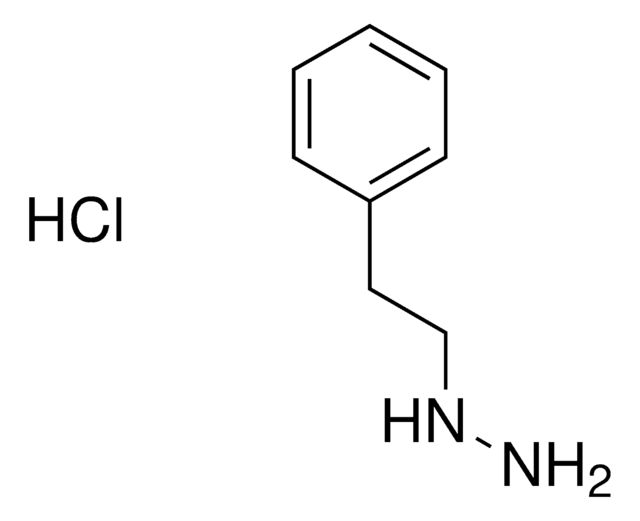SML0287
680C91
≥98% (HPLC)
Sinónimos:
6-Fluoro-3-[(1E)-2-(3-pyridinyl)ethenyl)-1H-indole
About This Item
Productos recomendados
Quality Level
assay
≥98% (HPLC)
form
powder
color
white to beige
solubility
DMSO: ≥10 mg/mL
storage temp.
2-8°C
SMILES string
Fc1ccc2c(\C=C\c3cccnc3)c[nH]c2c1
InChI
1S/C15H11FN2/c16-13-5-6-14-12(10-18-15(14)8-13)4-3-11-2-1-7-17-9-11/h1-10,18H/b4-3+
InChI key
YBSDQTBCNYWBMX-ONEGZZNKSA-N
application
- as a tryptophan 2,3 dioxygenase (TDO) inhibitor to study its effects on the pigmentation in Doryteuthis pealeii embryos
- as a TDO inhibitor to study its effects on esophageal squamous cell carcinoma in xenograft tumor assay
- as a tryptophan 2,3 dioxygenase 2 (TDO2) inhibitor to study its effects on toxic fragment formation in human embryonic kidney cells
Biochem/physiol Actions
signalword
Danger
hcodes
Hazard Classifications
Eye Dam. 1
Storage Class
11 - Combustible Solids
wgk_germany
WGK 3
flash_point_f
Not applicable
flash_point_c
Not applicable
Elija entre una de las versiones más recientes:
Certificados de análisis (COA)
¿No ve la versión correcta?
Si necesita una versión concreta, puede buscar un certificado específico por el número de lote.
¿Ya tiene este producto?
Encuentre la documentación para los productos que ha comprado recientemente en la Biblioteca de documentos.
Nuestro equipo de científicos tiene experiencia en todas las áreas de investigación: Ciencias de la vida, Ciencia de los materiales, Síntesis química, Cromatografía, Analítica y muchas otras.
Póngase en contacto con el Servicio técnico






![2,4-Dichlorothieno[3,2-d]pyrimidine AldrichCPR](/deepweb/assets/sigmaaldrich/product/structures/408/704/0886c958-6ca7-40e3-91c0-ecc81fbfe483/640/0886c958-6ca7-40e3-91c0-ecc81fbfe483.png)


